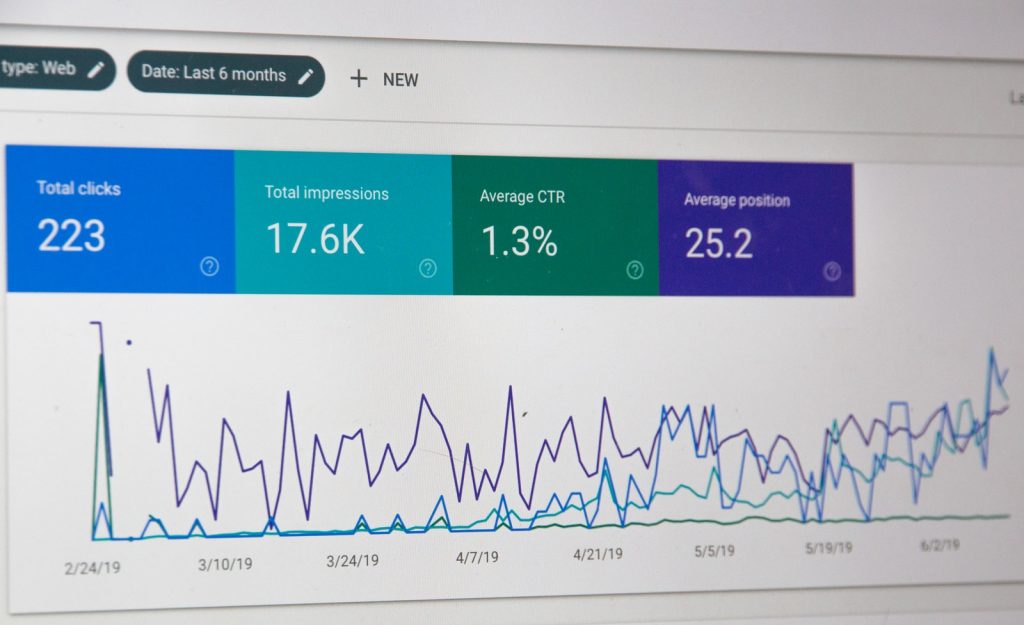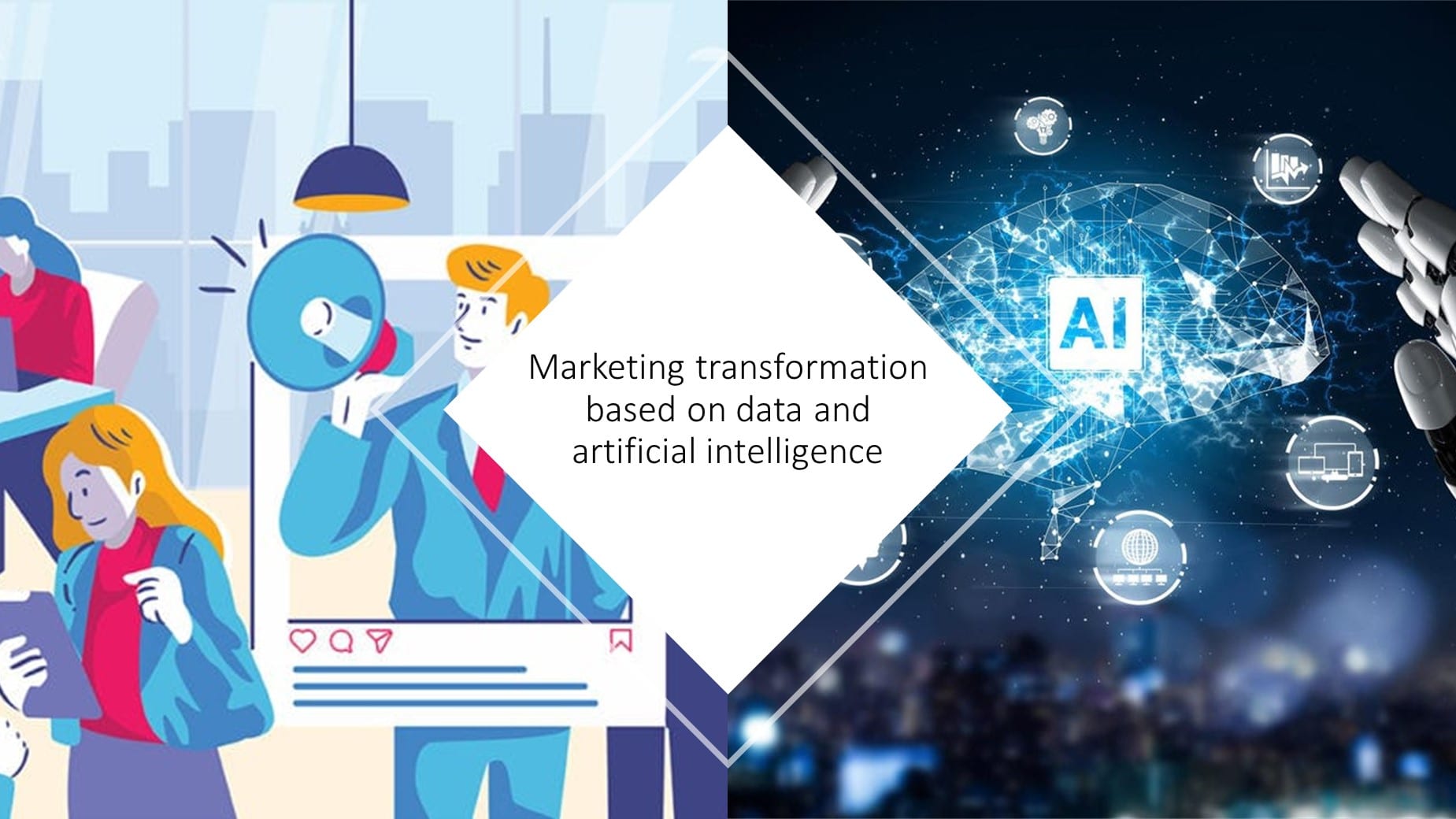The transformation in marketing over the last decade has been very marked. The way and means of communicating a message today are very different from the methods used a few years ago. The print media and television undoubtedly lost much of their prominence, while the interest of companies to appear among the first places in internet searches continues to be the focal point during this year.
What's in this article:
The reason for these marked changes is due to the advancement of Artificial Intelligence (AI), which has formed the basis of many of the most widely used strategies in successful companies today.
In this article, we will look at how artificial intelligence has managed to invigorate marketing to what we know today; successful in visualization and customer outreach methods.
What is artificial intelligence?
Unlike the concept that most people have about artificial intelligence starring robots, in reality, it has more to do with an algorithm capable of reproducing human capacities for thought and actions. Today many of the technologies we use are based on the premise of acting like a human would. This way, technology manages to recommend options to solve many of the problems that occur with digital resources.
A couple of decades ago, artificial intelligence was conceived as a subject far beyond the reach of the general population. However, it currently lives with us through many of the software that we use on the computer, in games, and many cases, in our day-to-day work tools.
We can see it even in the virtual assistants that even the smallest of the home usually use naturally, such as Siri, Alexa, or even the Google network itself.
These changes in using technological resources have significantly impacted the methods to promote products and reach the most significant number of customers effectively. That is why it is said that artificial intelligence has changed the way of doing marketing.
Artificial Intelligence leads to Transformation in Marketing
There is no doubt that the appearance of data and machine learning, beyond being part of information technology (IT), has helped in greatly advancing marketing techniques. Unlike what is customary in the field of market research through qualitative techniques, such as field surveys, today the analysis of specific data sets has led to major changes in marketing investments and behavior.
As there is the possibility for technology to learn from human behavior and thought, new strategies are generated adjusted to the needs of a specific group of people. So actions are not structured with the belief that they will work, but rather with the certainty that it will happen. Currently, artificial intelligence is capable of predicting changes in the future, so many of the marketing departments are prepared through this information, being able to plan their actions according to what is coming.
Among the most striking changes in marketing through technology are:
Big data and data analytics

Big data and data analysis are two of the biggest contributions of artificial intelligence that have changed the way we do marketing. Although the insights on the analyzed data are used for many more areas of the company and not only in the marketing department, they are of great help to him.
The data allows to better segment the audience, in addition to obtaining more information about the products they need or what their interests are. In this way, you can carry out email marketing strategies or recreate personalized user experiences that have a higher ROI (return on investment).
Social media listening
Another marketing strategy that is part of the technologies developed through AI (artificial intelligence) is Social Media Listening. This novel technique allows companies to know what is said about their brand and what are the topics of interest to users through the monitoring of social networks.
Currently, around 84% of the population has access to social networks, and these are one of the means of communication with the greatest impact among users. Therefore, knowing what is being said in this environment allows us to be prepared to reformulate actions and new strategies for the future.
Search engine optimization (SEO)
Search Engine Optimization better known as SEO is another technique that has undoubtedly transformed the way we carry out marketing. Today a trade without exposure on the internet is inconceivable. For a business to be successful online, SEO optimization is necessary on the web, so that when a user has a need and goes to Google to solve it, our solution is the first to appear.
While in previous years it was very important to know how to carry out television campaigns or write articles for print media, today it is essential to know the changing Google algorithm and the use of keywords to position our website.
At this point, the analysis of the context and the target audience is extremely important, since Google has the ability to approximate the user’s search intentions very well. That is why it is necessary to structure the content on that intention in order to appear among the top positions in the SERPS.
User experience UX and User Interface UI
The design and structuring of web pages are also something that artificial intelligence has interfered with. It is not only about making a page attractive or eye-catching but also that it has optimal usability for users.
In relation to the above, artificial intelligence allows personalizing the user’s experience and usability depending on what their interests are. A clear example of this happens in interfaces such as Netflix or Amazon, where both the content and suggestions, as well as the style of communication and speech shown to the person, are based on their choices and previous activity on the web. These algorithms learn from users, therefore the page is structured around them.
Chatbots in customer service
Customer service is another point that has advanced as technology does. In this sense, numerous platforms and strategies have emerged to provide support to users in a virtual way, without leaving aside the efficiency and cordiality that should be characteristic of this type of service in a company.
Artificial intelligence is the main protagonist of Chatbots, which symbolizes this type of virtual advisor capable of personalizing communication and giving a precise response in the least amount of time possible. He is a collaborator who works 24/7 and that, despite being only an algorithm, represents an effective way to improve the branding and reputation of the company in terms of user service.
Automated image recognition
Automated image recognition is another of the changes in marketing that artificial intelligence has produced. This methodology allows finding web portals with products or services through the images used, in addition to the recognition and association capacity that the program has.
A great example of this happens with the Pinterest platform, where automated image recognition allows you to get pages on its platform related to the idea you have in mind about the product. That is why Pinterest is a great marketing strategy for different businesses, especially those where the user tends to look for inspirational ideas before purchasing the product.
Dynamic pricing
Dynamic prices structured based on artificial intelligence are a very interesting way to make a company more competitive in front of its customers.
This technique allows you to adjust the price of products in real-time through the analysis of different data and metrics, which will make the product more desirable, depending on how demand is established at the time. In this way, it may have a greater chance of being acquired. In this regard, there are platforms such as Amazon or many of the travel and hotel booking aggregators that are specialists in this.
Benefits of Using Artificial Intelligence in Marketing
While knowing the marketing techniques that involve the use of artificial intelligence, you can get an idea of the benefits of each of them, then we will name some of the general advantages of implementing this type of technology in the marketing strategies of a company.
Accurate Marketing Metrics
Using artificial intelligence methods and studying data can provide metrics on the marketing strategies employed more precisely. This can promptly identify which efforts are functional and which are not. Which greatly optimizes the investment made by the company in marketing campaigns.
Higher return on investment (ROI)
The previous point leads to this second advantage. Knowing well what efforts are rewarded allows you to make smart investments, so the money used for marketing campaigns will be well used.
Improves decision-making
Decision-making through real and measurable data allows making reliable choices that are adjusted to the company’s objectives.
Improve customer service
Artificial intelligence helps to provide better customer service due to the speed of agile response times, offering personalized information, and being available at any time of the day, every day of the year.
Conclusion
Marketing has seen a great transformation in the wake of the advent of artificial intelligence. Issues that seemed like something of an unattainable future are the bread and butter in the area of digital transformation and it is becoming increasingly important to be aware of information technology (IT).
Marketers need to be willing to learn and incorporate technology into their solutions and strategies. This will allow them to achieve a greater reach of users, in addition to establishing beneficial metrics and objectives for the growth of the company.


Leave a Reply
You must be logged in to post a comment.